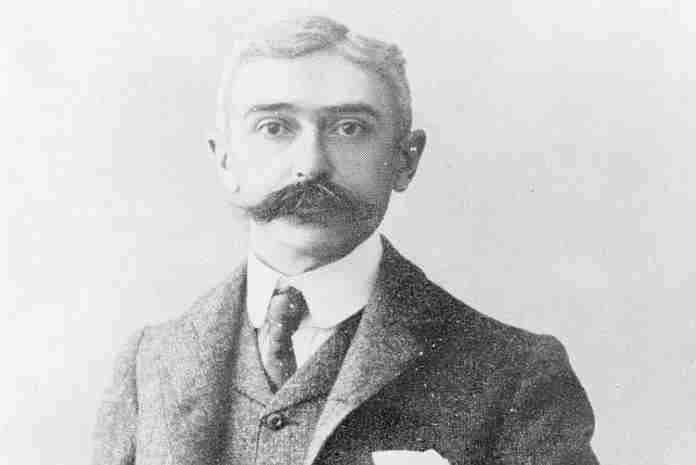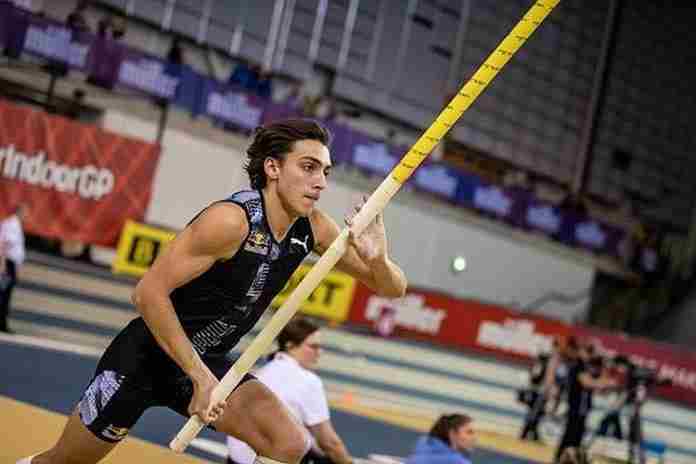The latest news, notes and quotes from the worldwide Five-Ring Circus:
● SportAccord ● The annual SportAccord World Sport & Business Summit, a key convention for the international sports industry, is the latest victim of the coronavirus outbreak in China.
On Thursday, the head of the program, Italian Raffaele Chiulli – also head of the International Powerboating Federation – announced that the 2020 edition, scheduled for 19-24 April in Beijing, is in limbo.
“SportAccord 2020 brings nearly 2,000 delegates together worldwide. In addition to that, a significant number of participating countries, organizations, companies and institutions to put on exhibitions during the event. Considering the epidemic in China and around the world and taking into account the various factors of such force majeure situation and through consultation with the SportAccord 2020 Local Organizing Committee, we have reached a difficult decision that SportAccord 2020 will not take place in Beijing.”
The hope is to find an alternate location on short notice. The convention is a major meeting point for international sports organization, broadcasters and sponsors and cancellation will result in missed opportunities.
It’s yet another significant impact of the coronavirus, which also caused the stunning cancellation of the Mobile World Congress in Barcelona (ESP), perhaps the world’s most important mobile technology convention.
● Olympic Winter Games 2022 ●The soap opera over whether the National Hockey League will allow its players to compete in the 2022 Winter Games continues with no end in sight.
Canada’s Sportsnet reported that “According to a couple of sources, it was made clear there was a commitment to coverage of charters, hosting, hotels, etc. There were also opportunities presented for use of the Beijing Olympic logo and event highlights across NHL/NHLPA platforms, a breakthrough both wanted.” That’s more than the International Ice Hockey Federation (IIHF) and the International Olympic Committee have offered before.
But NHL Deputy Commissioner Bill Daly told the Associated Press, “We aren’t there yet. In fact, we aren’t even close to being there. At this point in time, we continue to believe that the negatives outweigh the positives.”
A decision would likely have to be made next summer so that the 2021-22 schedule can be completed in time.
● Olympic Winter Games 2034 ● A new bid committee was announced on Wednesday (12th) of the “Salt Lake City-Utah Committee for the Games,” a group which will continue the discussions with the International Olympic Committee about a future Winter Games.
Salt Lake City hosted the highly-successful 2002 Winter Games and has nearly all of the necessary infrastructure to do so again. The United States Olympic & Paralympic Committee has selected Salt Lake City as its “preferred” candidate for the next American bid, but the question is whether 2030 or 2034 would be a better fit.
At the last IOC Session in January, three cities were identified as being potential Winter Games sites, including Sapporo (JPN), Salt Lake City and Barcelona (ESP). The Japanese bid is well advanced and is an early favorite for 2030.
Thanks to the award of the 2028 Olympic Games to Los Angeles, there is considerable concern over whether corporate sponsorship sales would suffer with consecutive Games held in the U.S. So the 2034 Winter Games are likely more attractive.
A Salt Lake City bid will have some significant advantages over and above its existing venues, notably on-the-ground experience from two senior members of the bid committee: Fraser Bullock, who was the Chief Operating Officer of the 2002 Games and will serve as President and Chief Executive of the bid, and Colin Hilton, who directed the Park City venue operations complex in 2002 and has been the President of the Utah Olympic Legacy Foundation since 2006. That kind of actual know-how is rare in a bid group and a major confidence builder for those looking for valid projections of the needs of a 2034 Winter Games.
● Cycling ● The Union Cycliste Internationale (UCI) confirmed on Tuesday (11th) its regulations on transgender participation in the female category: “if a Federation decides to use testosterone as an indicator, the transgender athlete will only be eligible to compete in the Women category if their serum testosterone level is below 5 nmol/L.”
This is the same level specified by World Athletics, which had this approach approved by the Court of Arbitration for Sport in an action commenced by twice Olympic 800 m champion Caster Semenya (RSA).
The rules also include requirements that “The athlete must prove that their serum testosterone level has been below 5 nmol/L for at least 12 months prior to the eligibility date” and “Once deemed eligible, the athlete must agree to keep their serum testosterone level below 5 nmol/L for the entire time they compete in the Women category.”
The transgender issue is heating up, as evidenced by a lawsuit filed in Connecticut in which the families of three high school track & field athletes have asked a Federal Court to block transgender athletes from competing.
According to the Associated Press, “The lawsuit was filed against the Connecticut Association of Schools-Connecticut Interscholastic Athletic Conference and the boards of education in Bloomfield, Cromwell, Glastonbury, Canton and Danbury” and that “They argue that allowing athletes with male anatomy to compete has deprived them of track titles and scholarship opportunities.”
● Figure Skating ● The head of the International Skating Union’s technical committee on Singles and Pairs competition has confirmed a proposal will be made to reshape how these events are contested.
In a story by the highly-respected Phil Hersh for NBCSports.com, Italy’s Fabio Bianchetti explained that the new approach would maintain two rounds of skating, with both to be the same length (instead of the current Short Program and Free Skate).
Further, the first skate – to be called the Technical Program – would weight 60% of the score on the technical elements and 40% on interpretation and presentation. The second segment, the Free Skate, would be reversed, with 60% on interpretation and 40% on the technical side.
The goal is to bring back more artistry and less reliance on jumping, which dominates the scoring under the current system. The proposal will be discussed at the ISU Congress in June and if approved – and it will be contested – could go into effect in the 2022-23 season … after the 2022 Olympic Winter Games in Beijing (CHN) is completed.
¶
The accusations of skater abuse in France by retired star Sarah Abitbol in her autobiography have led to the resignation of French skating federation president Didier Gailhaguet.
The alleged abuser was well-known coach Gilles Beyer – who has admitted “inappropriate” conduct in the early 1990s – and Gailhaguet has been accused of hiring Beyer as team manager of a national junior squad in 2011, long after he had knowledge of the interaction with Abitbol.
Gailhaguet himself has not been accused of abuse of any athlete.
● Football ● A report from the international audit firm of PWC called out the spending practices of the Confederation of African Football (CAF) as “unreliable and not trustworthy,” and continued:
“Based upon the procedures performed and documents reviewed, several red flags, potential elements of mismanagement and possible abuse of power were found in key areas of finance and operations of CAF.
“Given the serious nature of certain findings and red flags identified from the preliminary due-diligence, we cannot rule out the possibility of potential irregularities.”
The study showed that of a $10 million development grant made by FIFA, $8.4 million had either little or no documentation and “Large numbers of payments were made in cash, typically involving CAF issuing a ‘cheque to cash,’ which is then spent by a CAF Staff.”
FIFA Secretary General Fatma Samoura (SEN) had taken over management of the confederation for six months, but her management project has been deemed “complete,” although FIFA is continuing to monitor the CAF’s financial affairs.
FIFA chief Gianni Infantino announced a huge financial commitment to African football at a recent football development seminar in Morocco, but with considerable oversight and strings attached to ensure that the money is actually spent as expected.
● The Last Word ● Although he lost for the first time in 10 years last weekend at the Paris Grand Slam, French judo giant Teddy Riner was fairly unmoved.
“If this happens at the [Olympic] Games I’ll be annoyed. Better this happens now than then,” he told reporters after the loss to Japan’s Kokoro Kageura in the third round of the men’s +100 kg category, ending a 154-match streak.
“But I’ll tell you another thing too. It’s a relief in a way. Counting wins as I closed in on (Yasuhiro) Yamashita‘s record was really heavy.”
Yamashita of Japan won 203 straight matches from 1977-84, taking four World Championships golds and the 1984 Olympic title before retiring. The 6-8 Riner won in Rio in 2016 and owns 10 World Championship titles in the +100 kg and Openweight categories, but stopped competing after the 2017 Worlds to take some time off.
The pressure of a long win streak is real; ask 400 m hurdles star Edwin Moses, who won 122 straight races (107 finals) from 1977-87, and who acknowledged the burden as he got older and new challengers came up. Riner, now 30, is free to concentrate on piling up the points to ensure he qualifies for the Tokyo Games.

























